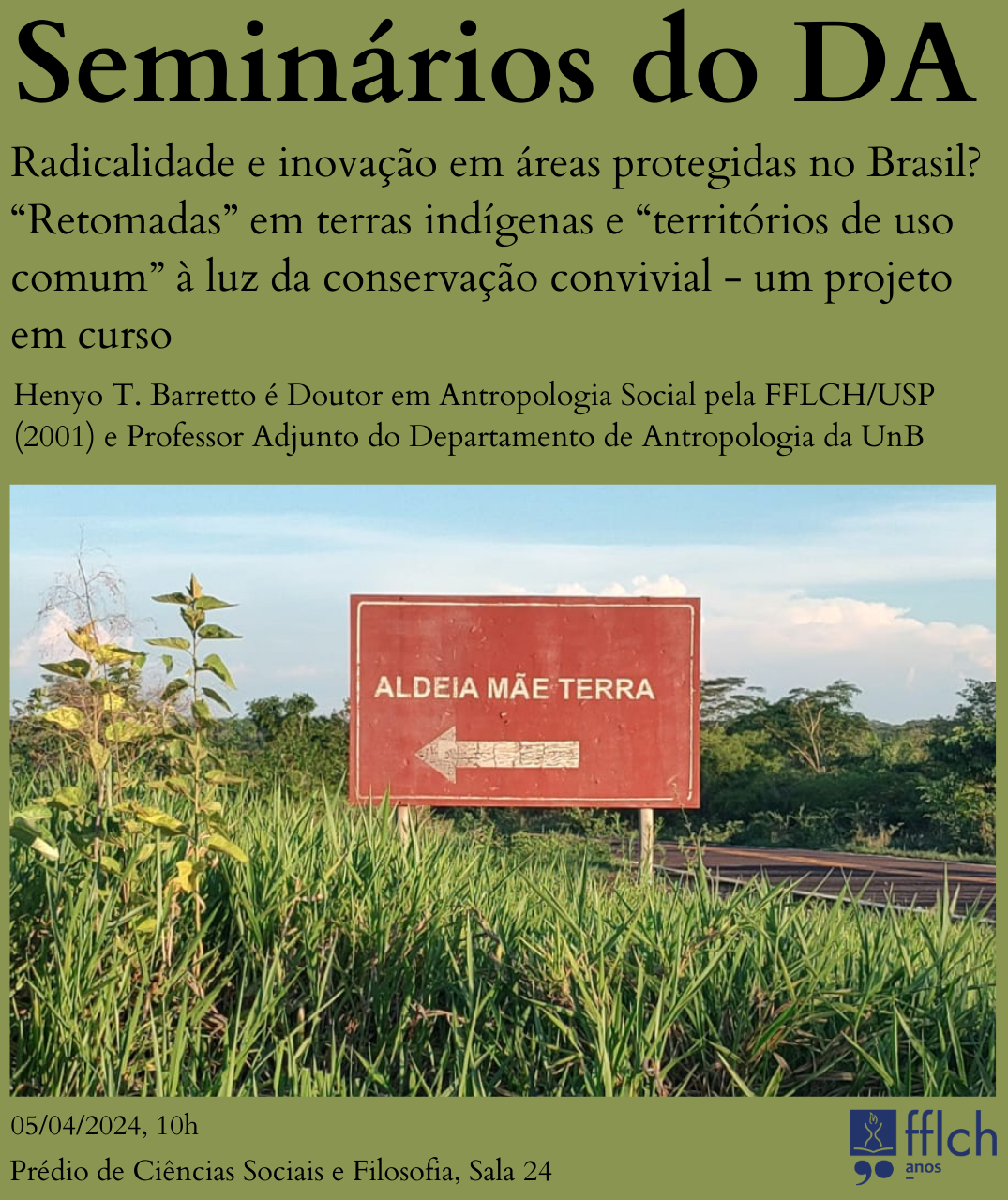I will present an ongoing research project, which aims to comparatively ethnograph radical and innovative initiatives to consolidate protected areas (in this case, indigenous lands and common use territories of riverside communities) and to achieve territorial rights, in the light of conservation conviviality and some subfields of anthropology, notably studies on science and technology. Convivial conservation presents itself as an approach to conserving biological and cultural diversity that takes seriously not only cascading species extinctions, but also the structural pressures of our economic system and the violent socio-ecological and increasingly authoritarian political realities in which we live. It is a set of management principles and a post-capitalist approach to conservation that attempts to promote radical equity, structural transformation and environmental justice, based on Ivan Illich's notion of a user-friendly tool. The two situations to be addressed are: (i) the recovery area (today village) Mãe Terra of the Terena people of the Cachoeirinha Indigenous Land, in the municipality of Miranda, in Mato Grosso do Sul, as an autonomous movement that aims to gain official recognition of the their right to land and which is at the origin of the Caianas indigenous organization; and (ii) the initiative, which emerged in 2012, as a result of the mobilization of a network of actors from civil society, the social movement and the public sphere, to regularize the land tenure situation of riverside communities in the state of Amazonas through concession terms real right of collective use for community associations located outside protected areas, under the category of common use territories. The research has been conducted collaboratively, respectively, with the indigenous organization Terena Caianas (Indigenous Environmentalist Collective of Action for Nature, Agroecology and Sustainability) and with the team of the Territorial Planning Program of the NGO Instituto Internacional de Educação do Brasil, protagonist collectives in both initiatives.
Henyo T. Barretto has a PhD in Social Anthropology from FFLCH/USP (2001) and Adjunct Professor in the Department of Anthropology at UnB. He researches indigenous lands and protected areas in the Northeast, the Amazon and the Cerrado (the topic of his presentation), and has recently returned from a post-doctoral stay at Wageningen University.


